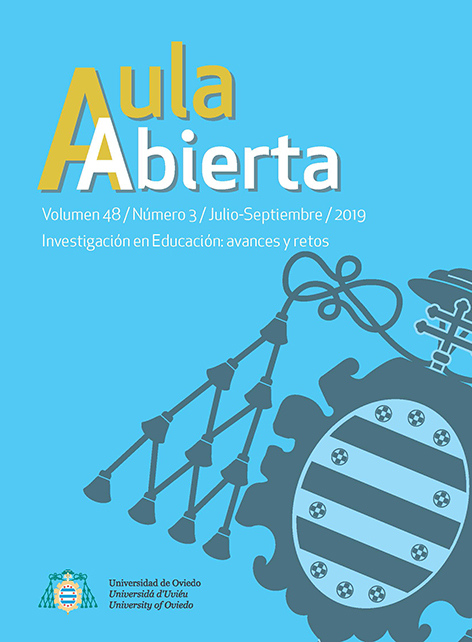Resumen
La autodeterminación es uno de los constructos de mayor importancia para fomentar el bienestar y la autonomía de las personas con discapacidad intelectual, a quienes tradicionalmente se les ha negado la oportunidad de ser agentes causales de sus propias vidas. A pesar de la importancia de este tema, existe aún una gran escasez de herramientas que permitan evaluar la autodeterminación y que ofrezcan información útil para elaborar planes de intervención específicos. El objetivo de este trabajo consiste en elaborar una escala objetiva de evaluación de la autodeterminación para jóvenes y adultos con discapacidad intelectual. Realizar un estudio Delphi con todos los agentes implicados (profesionales, familiares y personas con discapacidad) permitió crear un amplio pool de ítems que se aplicó a 165 participantes. Los datos ponen de manifiesto que la escala resultante cuenta con evidencias empíricas de validez y fiabilidad que garantizan la importancia de continuar investigando en esta línea.
Citas
Abery, B. H. y Stancliffe, R. (2003). An ecological theory of self-determination: theoretical foundations. En M.L. Wehmeyer; B.H. Abery, D.E. Mithaug y R.J. Stancliffe (Eds.). Theory in self-determination. Foundations for educational practice (pp. 25-42). Springfield, IL: Charles C. Thomas.
Carter, E. W., Trainor, A. A., Owen, L., Swedeen, B. y Sun, Y. (2010). Self-determination prospects of youth with high-incidence disabilities divergent perspectives and related factors. Journal of Emotional and Behavioral Disorders, 18(2), 67-81.
Field, S. y Hoffman, A. (1994). Development of a model for self-determination. Career Development for Exceptional Individuals, 17(2), 159-169.
Gómez, L. Verdugo, M.A., Arias, B. y Navas, P. (2008). Evaluación de la calidad de vida en personas mayores y con discapacidad: la Escala Fumat. Psychosocial intervention, 17(2), 189-199.
Martorell, A., Gutierrez-Recacha, P., Pereda, A. y Ayuso-Mateos, J. L. (2008). Identification of personal factors that determine work outcome for adults with intellectual disability. Journal of Intellectual Disability Research, 52(12), 1091–1101.
Mumbardó-Adam, C., Guardia-Olmos, J., Giné, C., Shogren, K. y Vicente, E. (en prensa): “Psychometric properties of the Self-Determination Inventory: Student Report (Spanish version): a structural equation modeling approach”. American Journal on Intellectual and Developmental Disabilities.
Naciones Unidas (2006). Convention on the rights of persons with disabilities. Recuperado de: http:// www.un.org/disabilities/convention/conventionfull.shtml
Schalock, R. L., Borthwick-Duffy, S.A., Bradley, V. J., Buntinx, W.H.E, Coulter, D., Craig, E. M., …Yeager, M. H. (2010). Intellectual disability, definition, classification and systems of supports (11ª Ed.). Washington, DC: American Association on Intellectual and Developmental Disabilities.
Shogren, K. A., Palmer, S. B., Wehmeyer, M. L., Williams- Diehm, K. y Little, T. D. (2012). Effect of intervention with the self-determined learning model of instruction on access and goal attainment. Remedial and Special Education, 33(5), 320–330. doi:10.1177/0741932511410072
Shogren, K. A., Wehmeyer, M. L., Little, T. D., Forber-Pratt, A. J., Palmer, S. B., y Seo, H. (2017). Preliminary validity and reliability of scores on the Self-Determination Inventory-Student Report version. Career for Development and Transition for Exceptional Individuals, 50(3), 251-263. doi:10.1177/2165143415594335
Shogren, K. A., Wehmeyer, M. L., Palmer, S. B., Forber-Pratt, A., Little, T. y Lopez, S. (2015). Causal agency theory: Reconceptualizing a functional model of self-determination. Education and Training in Autism and Developmental Disabilities, 50(3), 251–263.
Shogren, K. A., Wehmeyer, M. L., Palmer, S. B., Rifenbark, G., & Little, T. (2015). Relationships between self-determination and postschool outcomes for youth with disabilities. Journal of Special Education, 48(4), 256–267. doi:10.1177/0022466913489733
Tamarit, J. y Espejo, L. (2013). Experiencias de empoderamiento de personas con discapacidad intelectual o del desarrollo. Siglo Cero, 44(246), 26-39.
Verdugo, M. A., Arias, B., Gómez L. E. y Schalock, R. L. (2009). Formulario de la Escala GENCAT de Calidad de vida. Manual de aplicación de la Escala GENCAT de Calidad de vida. Barcelona: Departamento de Acción Social y Ciudadanía de Cataluña.
Verdugo, M. A., Gómez, L. E., Arias, B., Santamaría, M., Clavero, D, y Tamarit, J. (2013). Escala INICO-FEAPS: Evaluación integral de la calidad de vida de personas con discapacidad intelectual o del desarrollo. Salamanca: Publicaciones del INICO.
Verdugo, M. A., Gómez, L. E., Arias, B., Navas, P. y Schalock, R. L. (2014).Measuring quality of life in people with intellectual and multiple disabilities: Validation of the San Martin Scale. Research in Developmental Disabilities, 35, 75-86. doi: 10.1016/j.ridd.2013.10.025
Verdugo, M.A., Navas, P., Gómez, L.E. y Schalock, R. L. (2012). The concept of quality of life and its role in enhancing human rights in the field of intellectual disability. Journal of Intellectual Disability Research, 56(11), 1036-1045.
Verdugo, M. A., Vicente, E., Gómez-Vela, M., Fernández, R., Wehmeyer, M. L., Badia, M., González-Gil, F., y Calvo, M. I. (2015). Escala ARC-INICO de Evaluación de la Autodeterminación: Manual de aplicación y corrección. Salamanca: INICO.
Vicente, E., Guillén, V.M., Gómez, L.E., Ibáñez, A. y Sánchez, S. (2018) What do stakeholders understand by self-determination? Consensus for its evaluation. Journal of Applied Research on Intellectual Disabilities, 00, 1–13. https://doi.org/10.1111/jar.12523
Vicente, E., Mumbardó, C., Coma, T., Verdugo, M.A. y Giné, C. (en prensa). Autodeterminación en discapacidades intelectuales y del desarrollo: revisión del concepto, su importancia y retos emergentes. Revista española de discapacidad. Manuscrito enviado para su publicación.
Wehmeyer, M. L. (1999). A functional model of self-determination: Describing development and implementing instruction. Focus on Autism and Other Developmental Disabilities, 14, 53-62.
Wehmeyer, M.L. (2001). Assessment in self-determination: Guiding instruction and Transition Planning. Assessment for Effective Intervention, 26(4), 41-49.
Wehmeyer, M. L., Agran, M. y Hughes, C. (1998). Teaching self-determination to students with disabilities. Basic skills for successful transition. Baltimore: Paul H. Brookes.
Wehmeyer, M. L. y Kelchenr, K. (1995). The Arc’s Self-Determination Scale. Arlington, TX: The Arc of the United States.
Wehmeyer, M. L., Palmer, S. B., Lee, Y., Williams-Diehm, K. y Shogren, K. A. (2011). A randomized-trial evaluation of the effect of whose future is it anyway? On self-determination. Career Development and Transition for Exceptional Individuals, 34(1), 45–56.
Wehmeyer, M. L., Peralta, F., Zulueta, A., González-Torres, M.C. y Sobrino, A. (2006). Escala de Autodeterminación Personal: Instrumento de Valoración y Guía de Aplicación. Madrid: Editorial CEPE.





